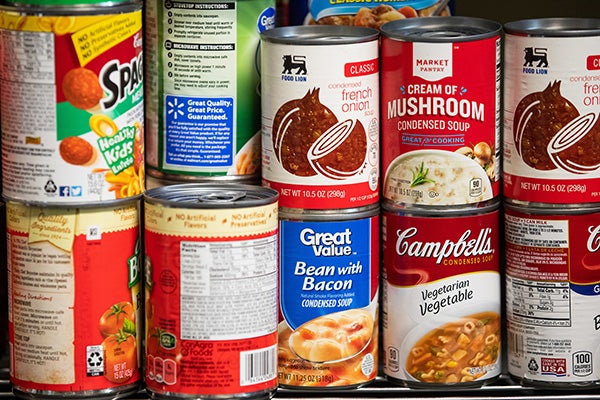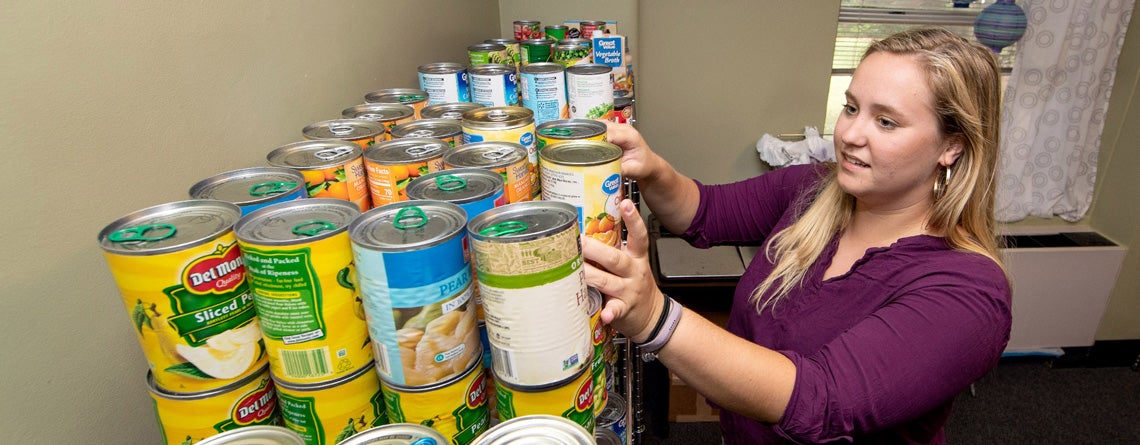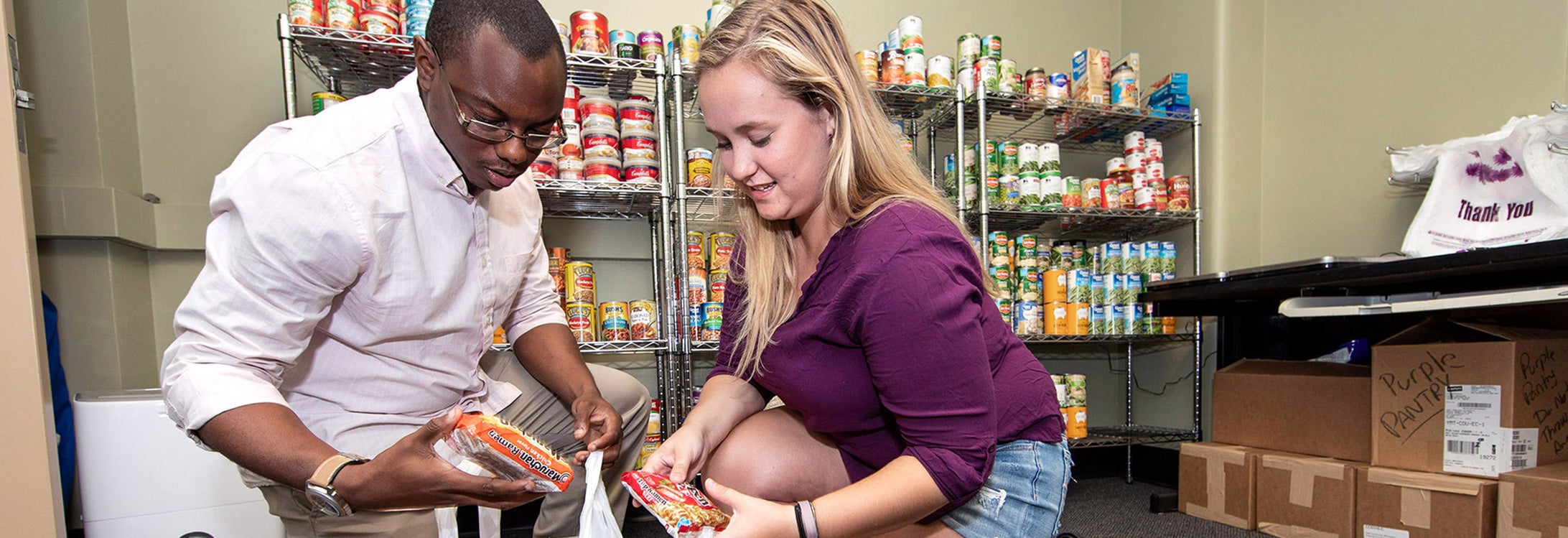PURPLE PANTRY
Partnership aims to address food insecurity on campus
College students have plenty to stress about — from exams and grades to their futures and the minefield of social life on campus. One stress they don’t need is wondering where their next meal is going to come from.
Yet East Carolina University’s Center for Counseling and Student Development reports that 39 percent of its student visitors experience stress associated with food. Almost half — 47 percent — find their financial situation “always or often stressful.”
The Purple Pantry, a food bank currently located in the counseling center and soon to be housed in the new Main Campus Student Center, is aimed at reducing food insecurity on ECU’s campus. A partnership between the Food Bank of Central and Eastern North Carolina in Greenville and a number of campus offices and organizations, the Purple Pantry is available to enrolled students through referral from the Dean of Students Office, the Center for Counseling and Student Development and Student Health. Eligibility is determined on a case-by-case basis.
Jarmichael Harris, collegiate recovery community coordinator, said student groups such as the Student Government Association and many others have pitched in to help bring an end to hunger in the community, donating their time as well as nonperishable goods.
“This service is very much in need on college campuses,” he said. “By providing this service, the university not only provides proper nourishment to its students, but it makes them feel as though their issues and needs are being heard and understood. … It’s all about serving others, educating our campus and erasing stigmas.”

Canned goods that have been donated to the Purple Pantry rest on the shelves at the counseling center.
Harris said it is the connection of two overlooked populations — food insecure students and students in recovery from substance abuse disorders — that makes the Purple Pantry special.
“While purple is the prominent color of all things ECU, it is also the color for recovery, hence the name Purple Pantry,” he said. “Students and allies of the ECU Collegiate Recovery Community give back to the university by volunteering their time in the pantry and to other hunger initiatives on campus.”
Ashton Fisher, a senior anthropology major, was integral in establishing the Purple Pantry.
“At the end of every semester I would use the remainder of my meals at Chick-fil-A, bag them all up, and take them to the homeless shelter,” she said.
She wanted to start an organization that would make it easier for students to donate meals to the homeless in the community. In talking with Dr. Lynn Roeder, dean of students, about the idea, Fisher was made aware of the issue of students in need right here on campus.
“Service is a pillar of East Carolina, and in order to help others we have to help ourselves,” Fisher said. “How can we advocate for community service when some of our Pirate family is struggling?”
Fisher said the student center is a perfect fit for the pantry.
“Both entities are new to ECU so naturally it would make sense that they would go together,” she said. “It is also a safe space; students should not be ashamed to go there. Everyone needs help at one time or another.”
Being located in the student center means the Purple Pantry is in a centralized and visible location and is accessible from the ECU Transit line, added Harris.
“Students who may not be aware of food insecurity issues in our community will have an opportunity to see ECU students actively engaged in addressing the issue and serving their fellow Pirates,” he said. “The hope is that that will engage more volunteerism both with ECU Purple Pantry and ECU Campus Kitchen to end hunger in eastern N.C.”
The Campus Kitchen is a student-led initiative that provides healthy living lessons as well as hot meals to children in the Greenville community. It is one of several hunger initiatives on ECU’s campus, said Nichelle Shuck, associate director of the Center for Leadership and Civic Engagement.
More than 145,000 people in the Greenville service area are identified by the Food Bank of Central and Eastern North Carolina as food insecure, including more than 42,000 children under 18.
“We know that, unfortunately, hunger impacts both on-campus and off-campus communities,” she said. “The CLCE is excited to help support the Purple Pantry and serve as one of the main advocates for hunger initiatives on campus and beyond.”
Fisher said she has a great deal of respect for students who choose to invest in themselves and in their education in the face of personal financial struggles.
“My hope is that other schools will be inspired by our example,” she said.

Ashton Fisher stocks the shelves at the Purple Pantry with canned goods.
